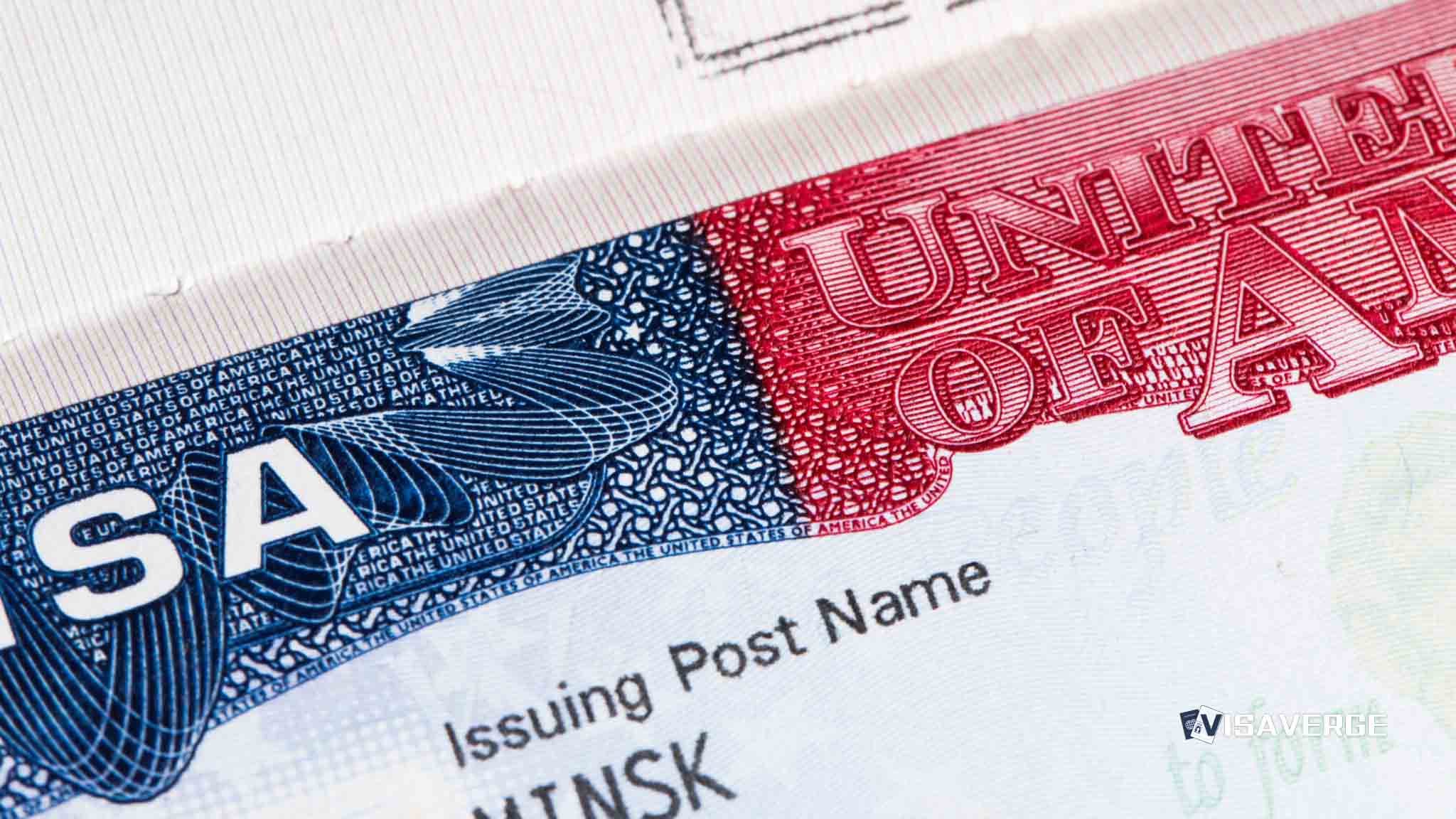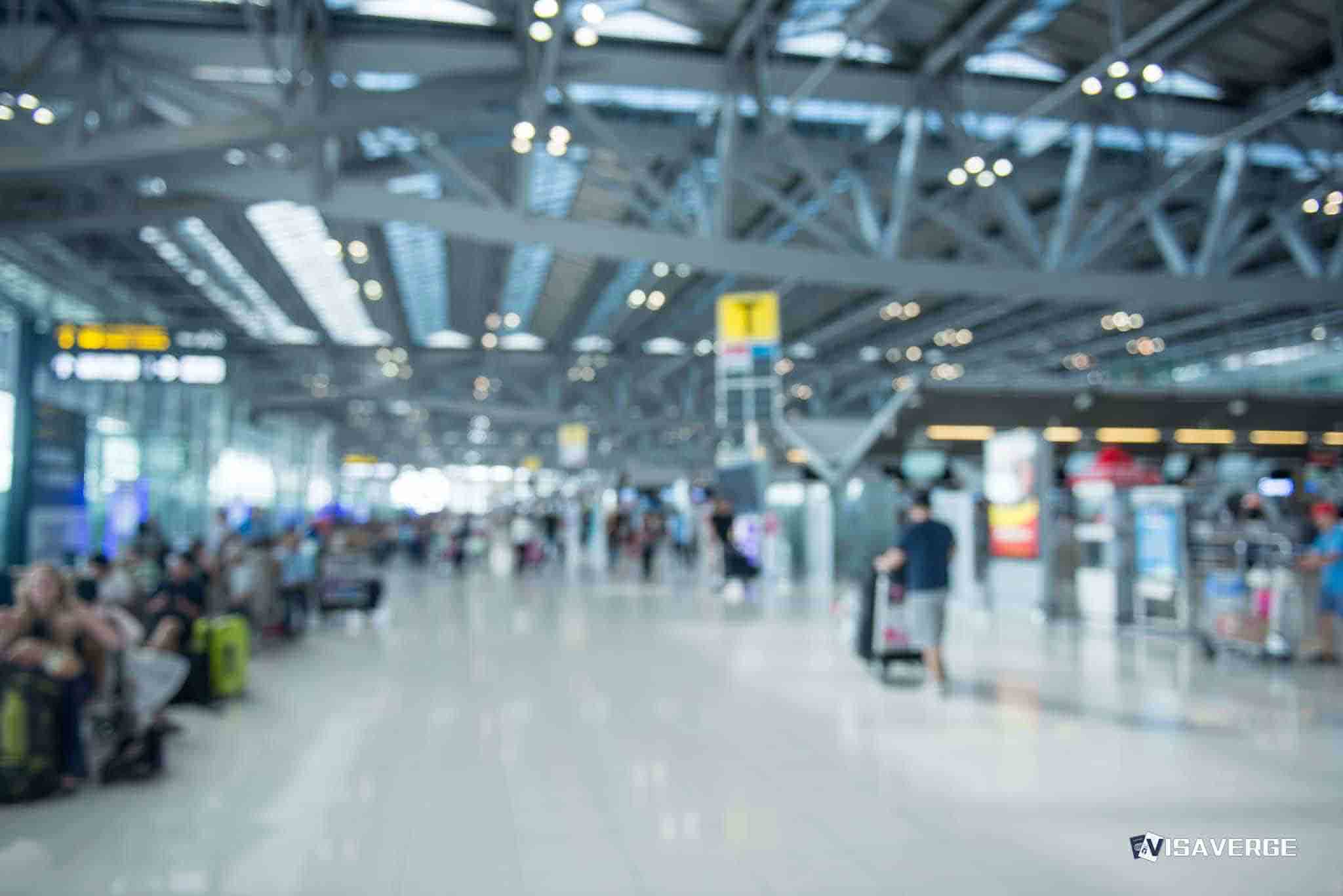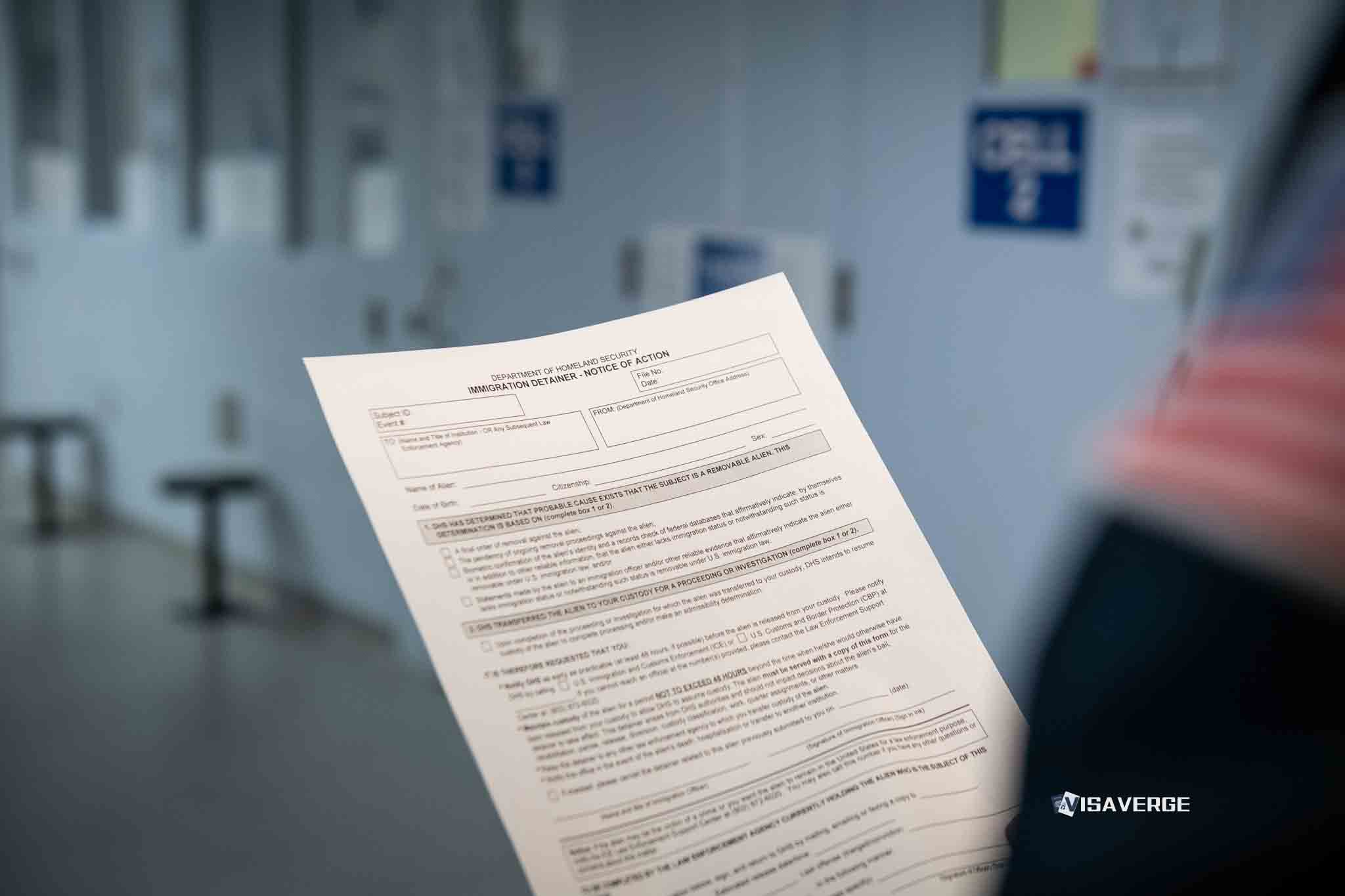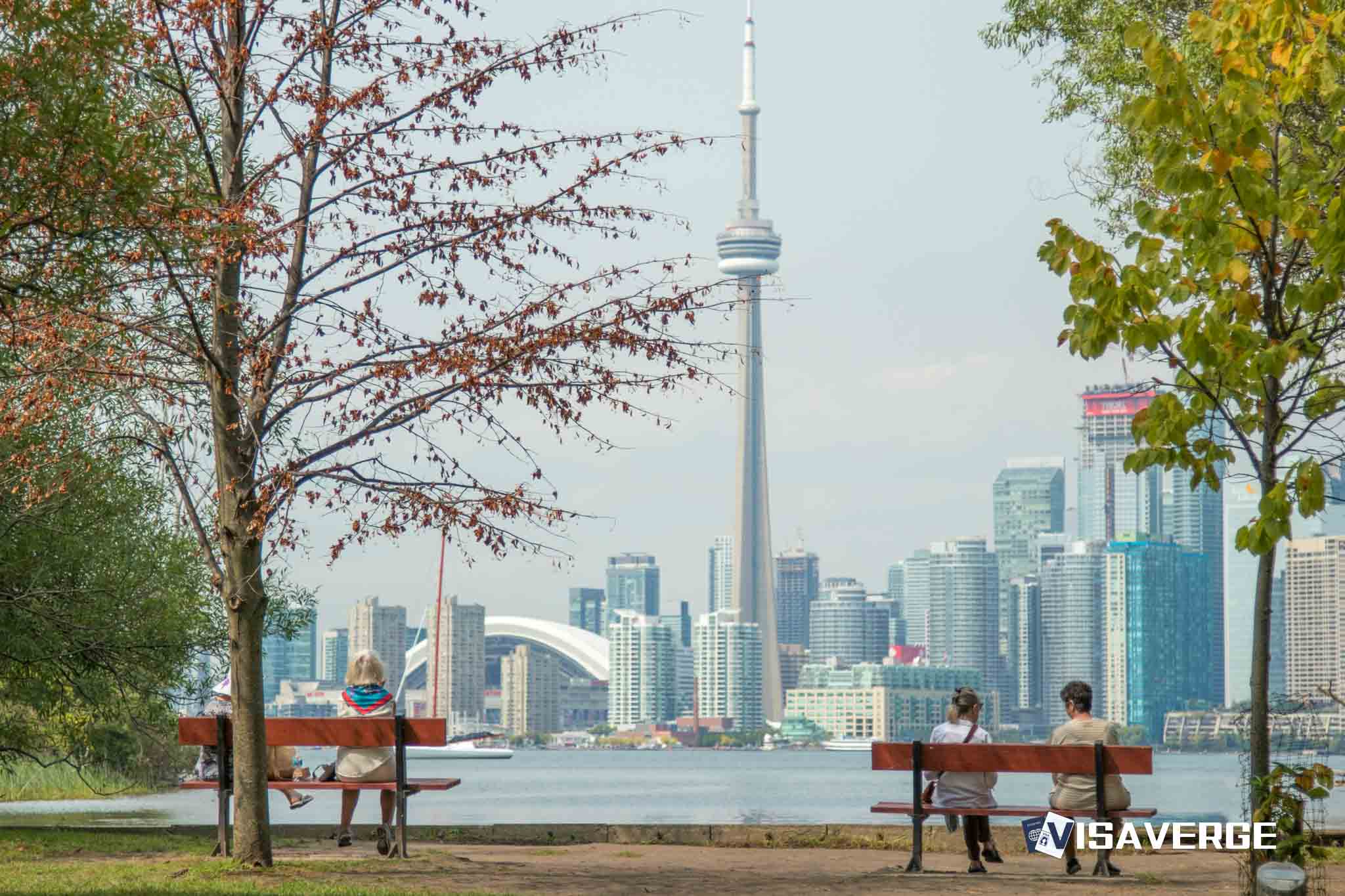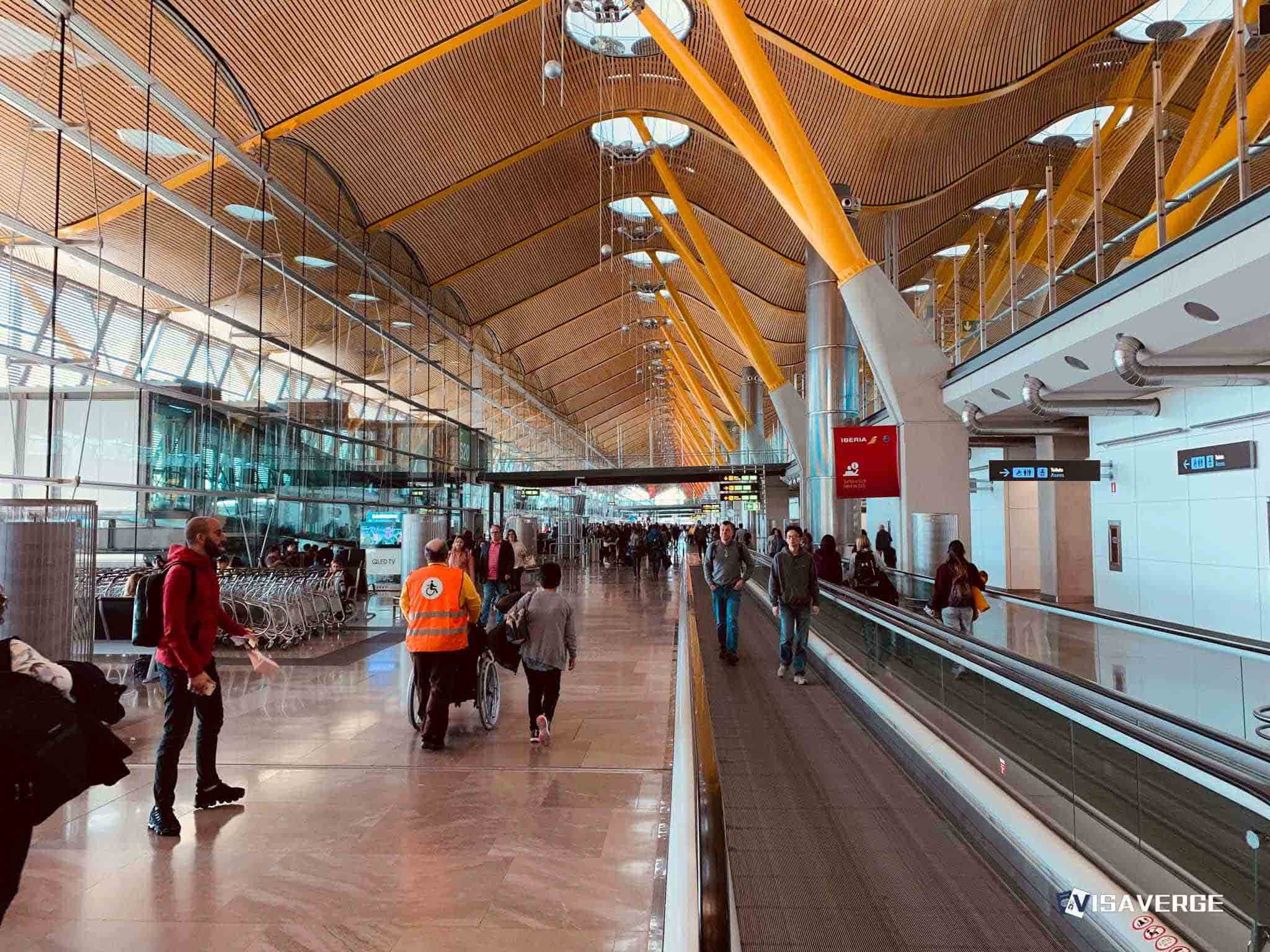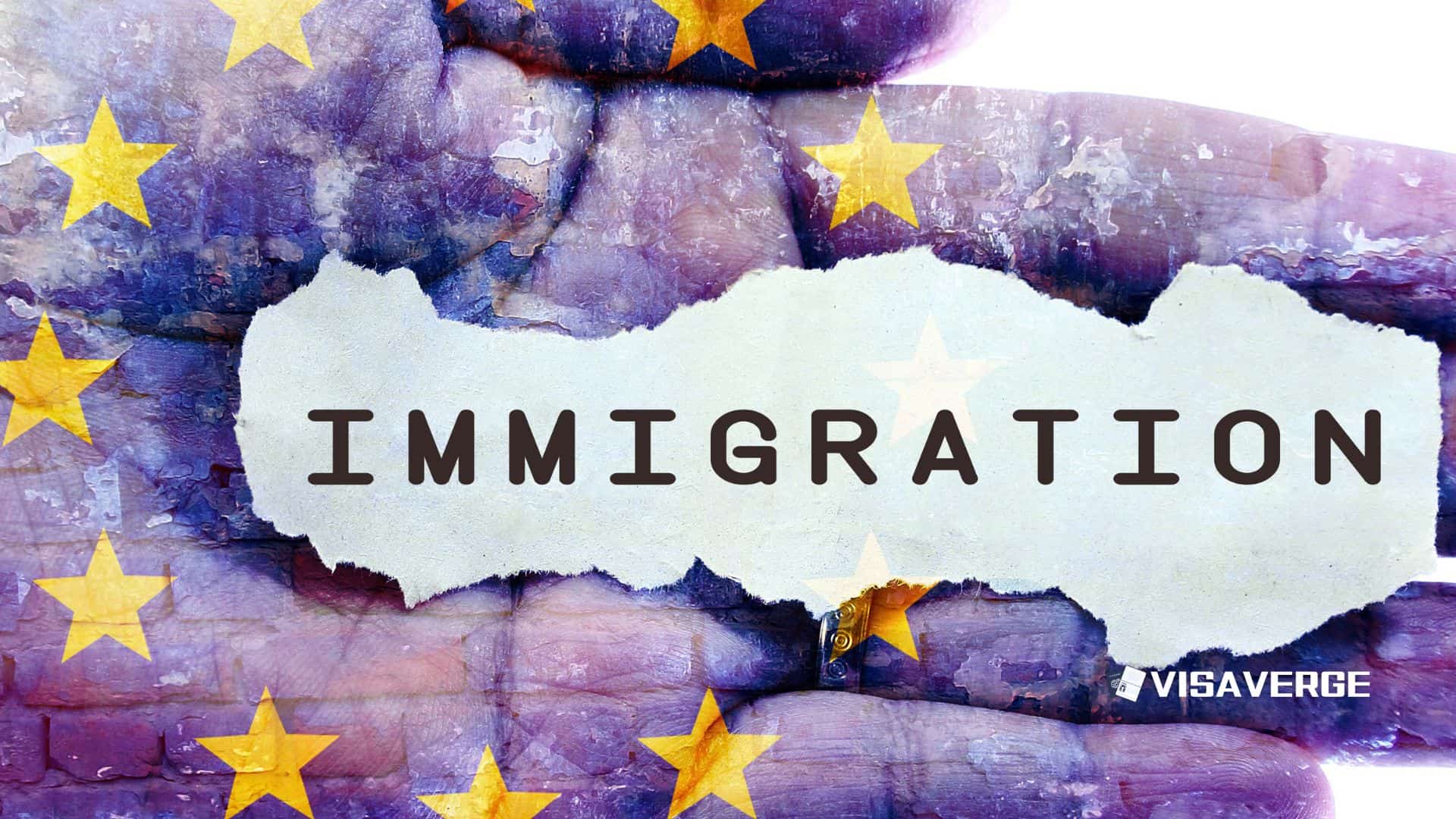Key Takeaways
• Trump froze U.S. refugee resettlement in 2025, except white South African Afrikaners.
• LGBTQ asylum seekers forced to wait in dangerous Mexico under ‘Remain in Mexico’ policy.
• ICE intensified detentions; transgender identities denied federal recognition as of January 2025.
For LGBTQ asylum seekers, the Trump Administration’s renewed ICE crackdowns and sweeping immigration changes have created a climate of fear and uncertainty across the United States 🇺🇸 and at its borders. Since January 2025, new executive orders have frozen refugee resettlement, forced asylum seekers—including those fleeing anti-LGBTQ violence—to wait in dangerous conditions outside the country, and erased federal recognition of transgender and non-binary identities. Human rights groups warn that these policies put lives at risk, leaving many LGBTQ individuals stranded, detained, or facing deportation to countries where they could face violence or even death.
Trump Administration’s Immigration Shift: Who Is Affected and How
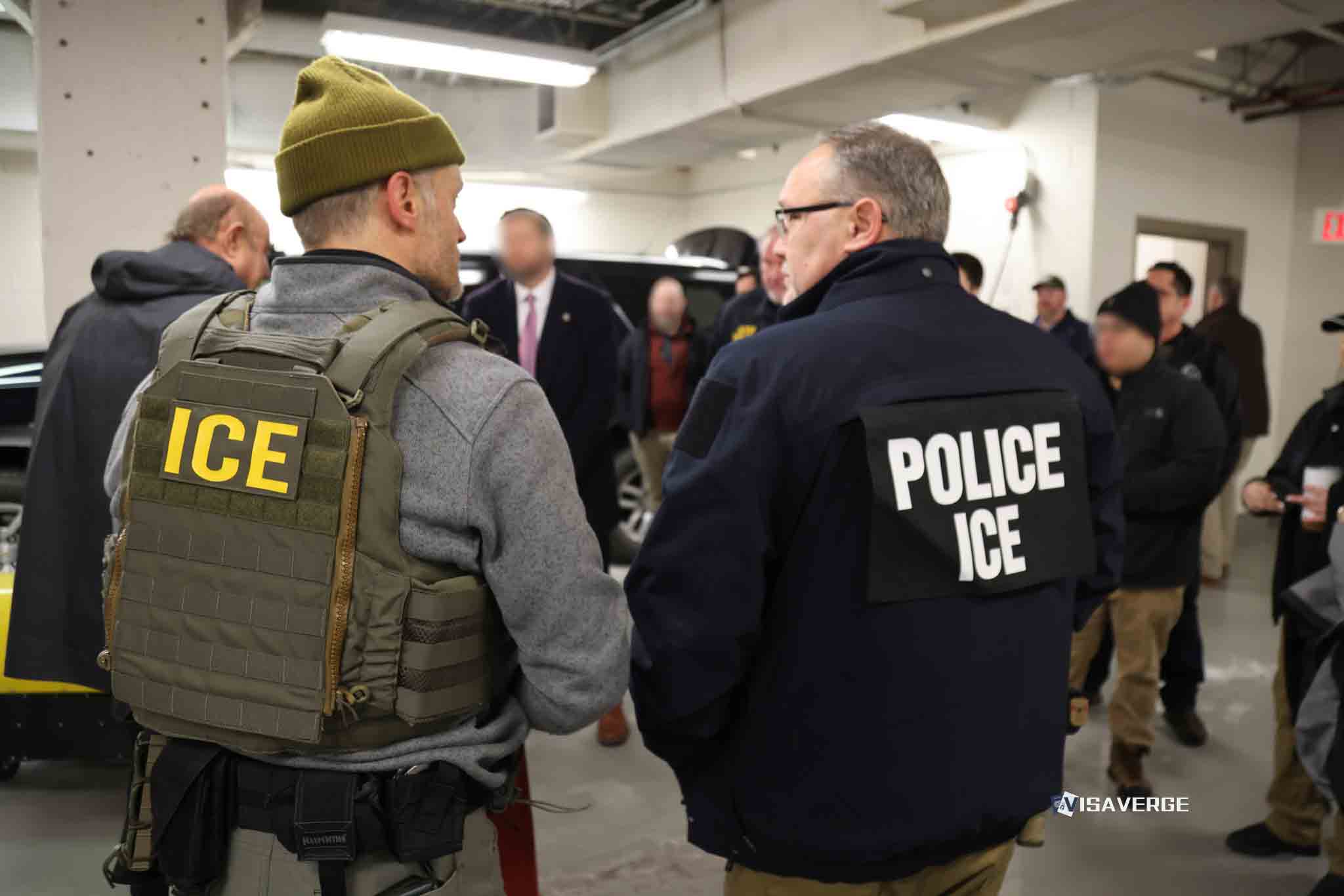
The most vulnerable are LGBTQ asylum seekers—people who have fled their home countries because of threats, violence, or persecution based on their sexual orientation or gender identity. Under the Trump Administration’s latest orders, these individuals are now:
- Blocked from U.S. refugee resettlement, except for a small group of white South African Afrikaners
- Forced to remain in Mexico or other countries while their asylum claims are processed, often in unsafe conditions
- Subject to mandatory detention if apprehended inside the United States 🇺🇸, with increased risk of abuse in detention centers
- At risk of deportation even if they have pending asylum claims or previously approved parole status
- Denied federal recognition of their gender identity if they are transgender or non-binary, making legal processes and daily life even harder
According to analysis from VisaVerge.com, these changes have left thousands of LGBTQ asylum seekers and refugees in limbo, stripped of protections that once offered a path to safety.
Key Policy Changes and Their Immediate Effects
Refugee Resettlement Freeze
On January 20, 2025, President Trump signed an executive order that suspended all U.S. refugee resettlement. This halt included refugees who had already been approved for entry, with the only exception made for white South African Afrikaners. As a result, refugee admissions dropped from 100,000 in 2024 to nearly zero in 2025. At least 61 LGBTQI+ refugees and their families, referred by Rainbow Railroad and Immigration Equality, were left stranded in dangerous countries despite having completed the approval process.
Asylum Restrictions and “Remain in Mexico”
The Trump Administration also reinstated and expanded the “Remain in Mexico” policy (officially called the Migration Protection Protocols). This policy requires asylum seekers—including LGBTQ individuals—to wait in Mexico or other third countries while their cases are processed. Many LGBTQ asylum seekers report facing violence, extortion, and discrimination in these waiting areas, with little protection from local authorities.
ICE Crackdowns and Mandatory Detention
ICE (Immigration and Customs Enforcement) has intensified interior enforcement, targeting immigrants for detention and deportation, including those with pending asylum claims. New orders require maximum detention of all apprehended immigrants, meaning that most LGBTQ asylum seekers are now held in detention centers. Advocates report a sharp increase in ICE raids and detentions, with many LGBTQ individuals living in constant fear, avoiding public spaces, and struggling to access legal or social services.
Termination of Humanitarian Parole Programs
On April 25, 2025, the administration ended parole status for over 530,000 individuals from Cuba, Haiti, Nicaragua, and Venezuela (CHNV). This move left many people—including LGBTQ asylum seekers—without legal status and at immediate risk of deportation.
Erasure of Gender Recognition
A sweeping executive order now requires all federal agencies to recognize only two sexes (male and female), eliminating recognition of transgender and non-binary identities in official documents, including asylum and immigration paperwork. This change makes it much harder for transgender and non-binary asylum seekers to have their identities respected or protected, both in legal processes and in daily life.
The Human Toll: Fear, Trauma, and Uncertainty
Firsthand Accounts and Advocacy Group Reports
Media coverage and direct reports from advocacy groups paint a grim picture for LGBTQ asylum seekers under the Trump Administration’s policies. Many individuals describe:
- Heightened anxiety and trauma due to the risk of detention and deportation
- Living in hiding to avoid ICE crackdowns, which have become more frequent and aggressive
- Fear of being sent back to countries where they face violence, torture, or even death because of their sexual orientation or gender identity
Eleanor Acer of Human Rights First stated, “These aren’t just bad policies, they are a death sentence for LGBTQI+ people fleeing violence and persecution, who are now left facing escalating risks without the lifesaving protections of U.S. resettlement and asylum.”
Aaron C. Morris of Immigration Equality added, “President Trump’s agenda to detain, deport, and dehumanize people is an affront to fundamental American values. The executive orders will cost lives, separate families, and trap queer people in places of extreme danger.”
Case Example: Stranded and at Risk
One example comes from Rainbow Railroad, which reported that at least 61 LGBTQI+ refugees and family members, who had already been approved for U.S. resettlement, are now stranded in countries where they face daily threats. These individuals have no clear path forward, as the resettlement process has been frozen and their legal status is in limbo.
Step-by-Step Reality for LGBTQ Asylum Seekers
The process for LGBTQ asylum seekers under current policies is more difficult and dangerous than ever before:
- Entry and Apprehension: Most must present themselves at the U.S. border or after entering the country. Now, many are forced to remain in Mexico or other third countries while their claims are processed.
- Detention: Upon apprehension, most are subject to mandatory detention, often in facilities with a history of abuse against LGBTQ individuals.
- Asylum Application: Applicants must prove a credible fear of persecution based on sexual orientation or gender identity. The process is now more difficult, with increased skepticism and inappropriate questioning reported.
- Adjudication: Many face long waits, limited access to legal help, and, increasingly, quick denials or removal without a full hearing.
- Deportation Risk: If denied or if their parole or lawful status lapses, individuals face immediate deportation, often without the chance to appeal.
For more information on the asylum process and official forms, readers can visit the U.S. Citizenship and Immigration Services (USCIS) Asylum page.
Policy Implications: Who Is Most at Risk?
LGBTQ Asylum Seekers and Refugees
- Trapped in unsafe countries due to the resettlement freeze and “Remain in Mexico” policy
- At risk of violence, torture, or death if deported or forced to wait in countries with anti-LGBTQ laws or attitudes
- Denied legal recognition if transgender or non-binary, making it harder to access services or fair treatment
Families and Communities
- Separated by detention and deportation, with many families torn apart by sudden removals
- Living in fear, avoiding public spaces and social services due to the risk of ICE crackdowns
Legal and Human Rights Advocates
- Facing increased barriers to providing support, as access to detained individuals is limited and legal processes are sped up or bypassed
- Challenging the legality of new policies in court, with multiple lawsuits underway
Background: How Did We Get Here?
First Trump Administration (2017–2021)
- Rolled back LGBTQ protections
- Implemented the original “Remain in Mexico” policy
- Cut refugee admissions to historic lows
Biden Administration (2021–2024)
- Restored and expanded refugee admissions
- Created the CHNV parole program for Cubans, Haitians, Nicaraguans, and Venezuelans
- Recognized gender diversity in federal documentation
Second Trump Administration (2025–Present)
- Rapidly reversed Biden-era policies
- Reinstated and expanded harsh enforcement, including ICE crackdowns
- Targeted LGBTQ protections for elimination
Quantitative Impact: The Numbers Behind the Crisis
- Refugee admissions: Dropped from 100,000 in 2024 to nearly zero in 2025, except for a small group of white South African Afrikaners
- CHNV parole termination: Over 532,000 people lost status as of April 25, 2025
- Stranded LGBTQI+ refugees: At least 61 left in dangerous conditions despite approved applications
- Detention and deportation: No exact numbers for LGBTQ-specific detentions, but advocates report a sharp increase in ICE raids and detentions targeting vulnerable populations
Multiple Perspectives: Supporters and Critics
Human Rights Organizations
Groups like Immigration Equality, Human Rights First, Rainbow Railroad, ORAM, and the Council for Global Equality have strongly condemned the Trump Administration’s policies. They argue that these actions violate both U.S. and international law and create a humanitarian crisis for LGBTQ asylum seekers and refugees.
Trump Administration
Officials defend the policies as necessary for national security and economic reasons. However, critics point to the exception for white South African Afrikaners as evidence of discriminatory intent.
Public Opinion
A recent Pew Research poll (June 17, 2025) shows that most Americans disapprove of mass deportations and asylum suspensions, but support for border wall expansion has increased among President Trump’s supporters.
Barriers to Legal Recognition and Due Process
The rollback of gender recognition means transgender and non-binary asylum seekers face extra hurdles. Without federal recognition of their gender identity, they may be placed in detention facilities that do not match their identity, increasing the risk of abuse. The administration has also sought to eliminate judicial review and due process protections, making it easier to deport asylum seekers without a hearing.
What’s Next? Legal and Political Battles Ahead
Legal Challenges
Multiple lawsuits are underway challenging the legality of the resettlement freeze, gender recognition rollback, and removal of due process protections. The outcomes of these cases remain uncertain, but advocacy groups are pushing for courts to restore protections for LGBTQ asylum seekers.
Congressional Action
Human rights groups are urging Congress to intervene and restore asylum and refugee protections. However, the current political climate makes it unclear whether lawmakers will act.
Advocacy and Awareness
With World Refugee Day approaching on June 20, 2025, advocacy groups plan major actions and reports to highlight the crisis and pressure policymakers for change.
Resources and Support for LGBTQ Asylum Seekers
If you or someone you know is affected by these policies, several organizations offer support, legal help, and information:
- Immigration Equality: immigrationequality.org
- Human Rights First: humanrightsfirst.org
- Rainbow Railroad: rainbowrailroad.org
- Council for Global Equality: globalequality.org
- ORAM: oramrefugee.org
Summary Table: Key Trump Administration Policies Affecting LGBTQ Asylum Seekers
| Policy/Action | Date/Status | Impact on LGBTQ Asylum Seekers |
|---|---|---|
| Refugee Resettlement Freeze | Jan 20, 2025 | Traps LGBTQ refugees in dangerous conditions |
| Remain in Mexico (MPP) | Reinstated 2025 | Forces asylum seekers to wait in unsafe areas |
| ICE Interior Enforcement Surge | Ongoing 2025 | Increased detentions, deportations, and fear |
| Gender Recognition Rollback | Jan 2025 | Erases federal recognition of trans/non-binary |
| CHNV Parole Termination | Apr 25, 2025 | 532,000+ lose status, at risk of deportation |
Practical Guidance: What Can LGBTQ Asylum Seekers Do Now?
- Seek legal help immediately if you are at risk of detention or deportation. Many organizations offer free or low-cost legal services.
- Document your case as fully as possible, including evidence of persecution or threats in your home country.
- Stay informed about your rights and any changes to immigration policies. Official government resources, such as the USCIS Asylum page, provide up-to-date information.
- Connect with advocacy groups for support, resources, and community.
Conclusion: A Call for Urgent Action
The Trump Administration’s immigration and asylum policies have created a dangerous and uncertain environment for LGBTQ asylum seekers. With resettlement frozen, asylum access restricted, and gender recognition erased, many are left stranded or at risk of being sent back to countries where they face serious harm. Human rights groups are calling for urgent action to restore protections, but the immediate outlook remains bleak as legal and political battles continue. For those affected, connecting with advocacy organizations and staying informed about your rights is more important than ever.
Learn Today
Executive Order → A presidential directive that manages federal government operations and policies.
Remain in Mexico → A policy requiring asylum seekers to wait in Mexico during U.S. asylum processing.
ICE → U.S. Immigration and Customs Enforcement responsible for immigration enforcement and detention.
Humanitarian Parole → Temporary permission to enter the U.S. for urgent humanitarian reasons.
Gender Recognition → Official acknowledgement of a person’s gender identity in legal documents.
This Article in a Nutshell
The Trump Administration’s 2025 immigration policies harm LGBTQ asylum seekers by freezing refugee resettlement, enforcing detention, and erasing transgender recognition, leaving thousands stranded and vulnerable amid increased ICE crackdowns and unsafe wait conditions outside the U.S.
— By VisaVerge.com



